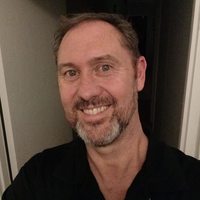
Jason Rushton
I have worked in government and non-government agencies from frontline to managerial and operational capacity for over 30 years. I enjoy work that is challenging, interesting and allows me to take ownership of my abilities and professionalism, while working within a bi-cultural and multi-cultural context within the guidelines of the United Nations Declaration on the Rights of Indigenous Peoples. I am a Registered Social Worker and Supervisor in Australia and New Zealand and in my private practice offer Clinical Supervision and Management skills too social service professionals.
less
Related Authors
Jai Mackenzie
The University of Nottingham
richard fletcher
The University of Newcastle
Masakazu Shibata
Malmö University
Elizabeth Pearson
Royal Holloway, University of London
Norman Jackson
University of Life: Lifewide Education Community Interest Company UK
Jessica S White
The University of Queensland, Australia
Priscilla Boff Ferronato
University of Illinois at Urbana-Champaign
InterestsView All (13)

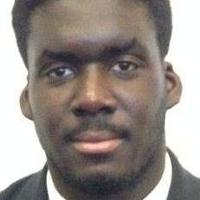
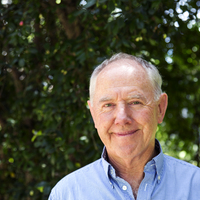


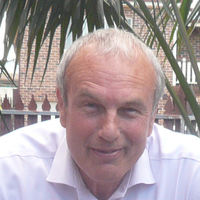

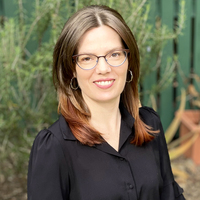
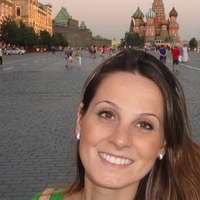
Uploads
Papers by Jason Rushton
participants identified themselves as straight; while the remaining four
participants were divided into two subsets from the Gay, Lesbian, Bisexual, Transgender, Intersexed and Queer/Questioning (GLBTIQ) community namely, three being gay and one identified as bisexual.
The study’s findings were congruent with existing literature on the experiences of fathers who accessed social services in the hope of supporting their family. The findings included factors contributing to the discourse fathers felt in accessing supports and their rationale for choosing not to engage with further supports. Furthermore, there were four key findings namely, (1). Men who assume gender reversal roles like that of sole parent, who experience discrimination and minimisation based on gender and sexual identity of their basic human rights as set out in legislation, religion and societies disposition towards men taking up this role. (2). There is still much work to be done to create truly inclusive support services, and an authentically respectful social consensus on issues like marriage equality and non-traditional family types. (3). How social workers can apply this knowledge when supporting and advocating for fathers who are experiencing institutional barriers to accessing social services. (4). The findings provided knowledge around the challenges sole fathers faced in Aotearoa New Zealand when accessing supports in the hope to support and care
for their families. These include recommendations to establish a Ministry for Men that oversee men’s health, and the required changes to ensure that sole fathers can access social service supports. Therefore, it is the hope that this research supports social workers when they apply this knowledge in supporting and advocating for fathers who are experiencing institutional barriers to accessing social services.
However, none of these professional bodies offer a code of ethics to provide guidelines to volunteers. The Aotearoa New Zealand Association of Social Workers (ANZASW) does offer a Code of Ethics, not only to social workers but to all social services and volunteers (Beddoe & Randal, 1994, p. 31), which could be incorporated and used as a guideline. Although social work has a code of ethics guideline there is still some debate around mandatory registration to provide accountability and safeguard clients and social work practice.
participants identified themselves as straight; while the remaining four
participants were divided into two subsets from the Gay, Lesbian, Bisexual, Transgender, Intersexed and Queer/Questioning (GLBTIQ) community namely, three being gay and one identified as bisexual.
The study’s findings were congruent with existing literature on the experiences of fathers who accessed social services in the hope of supporting their family. The findings included factors contributing to the discourse fathers felt in accessing supports and their rationale for choosing not to engage with further supports. Furthermore, there were four key findings namely, (1). Men who assume gender reversal roles like that of sole parent, who experience discrimination and minimisation based on gender and sexual identity of their basic human rights as set out in legislation, religion and societies disposition towards men taking up this role. (2). There is still much work to be done to create truly inclusive support services, and an authentically respectful social consensus on issues like marriage equality and non-traditional family types. (3). How social workers can apply this knowledge when supporting and advocating for fathers who are experiencing institutional barriers to accessing social services. (4). The findings provided knowledge around the challenges sole fathers faced in Aotearoa New Zealand when accessing supports in the hope to support and care
for their families. These include recommendations to establish a Ministry for Men that oversee men’s health, and the required changes to ensure that sole fathers can access social service supports. Therefore, it is the hope that this research supports social workers when they apply this knowledge in supporting and advocating for fathers who are experiencing institutional barriers to accessing social services.
However, none of these professional bodies offer a code of ethics to provide guidelines to volunteers. The Aotearoa New Zealand Association of Social Workers (ANZASW) does offer a Code of Ethics, not only to social workers but to all social services and volunteers (Beddoe & Randal, 1994, p. 31), which could be incorporated and used as a guideline. Although social work has a code of ethics guideline there is still some debate around mandatory registration to provide accountability and safeguard clients and social work practice.